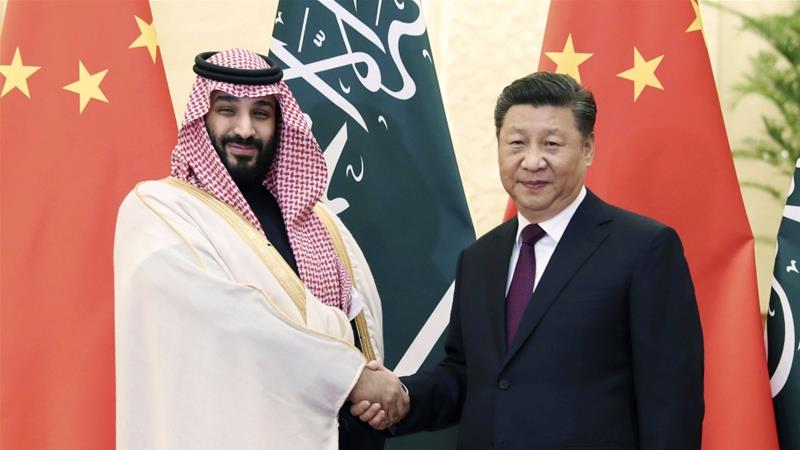
(TibetanReview.net, Feb25’19) – China expects to be complimented, perhaps even awarded the Nobel Peace Prize, for its much criticized practice of incarcerating around a million Muslim minorities of East Turkestan (Xinjiang) in what has been described as concentration camps. Calling its move counter-terror and de-radicalisation efforts, a senior diplomat told foreign envoys last week that China should be applauded for creating a new method of tackling the problem, reported Reuters Feb 24.
While Muslim countries have been criticized for their silence on the development, Saudi Arabia’s Crown Prince Mohammed bin Salman has finally broken his silence only to applaud Beijing. “We respect and support China’s rights to take counter-terrorism and de-extremism measures to safeguard national security,” independent.co.uk Feb 24 quoted Mr Bin Salman as saying, citing China’s state-run Xinhua news agency Feb 22.
“We stand ready to strengthen cooperation with China,” he was reported to have added during a summit with President Xi Jinping as the pair cemented a $10bn deal for a refining and petrochemical complex in China.
The Crown Prince’s remark, if true, is a result of China’s stepped up diplomatic outreach over the controversial camps in the region which is the homeland of Uyghur Muslims. Beijing has invited more foreign diplomats to visit the region as it seeks to head off criticism from Muslim-majority nations and at the United Nations, the Reuters report said. Such invited diplomats are carefully chosen and they only get to see and hear what China wants.
So far, the only Muslim country to openly criticize China’s camp move has been Turkey. Xinjiang’s Uyghur Muslims are of Turkic origin and its strong criticism is seen as being largely meant for public display, with no adverse effect on bilateral ties.
Beijing calls the camps vocational training facilities, adding they have been highly successful in stopping attacks it previously blamed on Islamist militants and separatists. But based on non-governmental sources and witnesses, rights groups say they are internment camps where inmates are forced to severely curtail or dilute their religious faith and practices and support the atheist Chinese rule in their homeland. These have included forcing the inmates to consume pork and alcohol, which are banned by Islam.
Chinese officials briefed diplomats from more than 80 countries and international organisations in Beijing on Feb 22 about Xinjiang, the report cited China’s foreign ministry as saying Feb 24.
“Xinjiang’s counter-terrorism and de-extremism efforts have created a new way to solve the symptoms and root cause of the difficult global issue of counter-terrorism, and are worthy of praise,” China’s Deputy Foreign Minister Zhang Hanhui was quoted as saying.
The report said China was also lobbying hard to thwart scrutiny of the Xinjiang camps at the UN Human Rights Council’s main annual session, which opens on Feb 25.
Saudi Arabia’s ruling family has portrayed itself as the defender of Muslims across the world and protector of Islam’s two holiest shrines, noted the independent.co.uk report.





